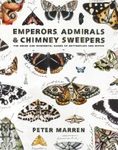"One of the repeated themes of The Lost Art of Finding Our Way is that even the most confused of us can improve our navigational understanding by paying closer attention to the world around us [...] A learned and encyclopedic grab bag, packed with information drawn from study and Huth's own experience."
– Michael Dirda, The Washington Post
"It's a great reference, filled with personal and historical anecdotes and fascinating bits of physics, astronomy, oceanography, and meteorology. And that's one of Huth's central points: To find your way in a world without maps, you can't rely on any single cue – you need to make the best of whatever combination of cues is available to you [...] With a little study, The Lost Art of Finding Our Way could be your guide to reconnecting with the navigational aids in the world around you."
– Greg Miller, Wired
"John Huth's The Lost Art of Finding Our Way is a book for anyone who's ever cursed themselves for not being able to get home by way of the stars and winds. Or for anyone who wants to learn how the Vikings and others once managed to."
– Thomas Meaney, The Times Literary Supplement
"Full of wisdom that is fast disappearing in an age of satnav and GPS."
– Arthur Musgrave, The Guardian
"[Huth's] exuberance shines through: he makes gadgets in his garage and narrates adventures at sea. Huth's is a book filled with joy about what we might term the everyday mathematics of living on the Earth [...] Huth is concerned that we have become desensitized to our physical environment because of technology such as smartphones and global positioning systems, which do the work of plotting and routefinding for us. To live in what Huth dubs 'the bubble' created by such devices is to lose not only our wonder at the world but also a bundle of precious survival skills. To be able to find our way in the world is to reconnect with its value in a virtuous spiral of environmental awareness."
– Robert J. Mayhew, Times Higher Education
"The book offers a clear, comprehensive, and entertaining short course in navigation that draws on Earth science, history, anthropology, neuroscience, archaeology, and linguistics. It provides both a primer on navigational techniques and a tour through 'the historical evolution of way finding.' Huth punctuates instruction on celestial navigation and reading wind, weather, and currents with engaging stories and images. These are derived from sources as varied as the oral histories of Pacific Islanders and Inuit hunters, Homer's Odyssey, Icelandic sagas, navigational tables from the medieval Islamic world, and contemporary news reports and sailing accounts."
– Deirdre Lockwood, Science
"Humanity's lust for exploring terra incognita shaped and tested our prodigious capacity for mental mapping. Now, with the advent of the Global Positioning System, wayfaring skills are on the wane. Physicist John Edward Huth turns explorer in this rich, wide-ranging and lucidly illustrated primer on how to find yourself in the middle of somewhere. Huth's prescription for navigating fog, darkness, open ocean, thick forests or unknown terrain rests first on harnessing compass, Sun and stars; then on the subtleties of weather forecasting and decoding markers such as the wind, waves and tides."
– Nature
"[An] irresistible book [...] Huth has an affable, smart tone, as welcoming as a Billy Collins poem. His knowledge of way-finding and its history is rangy and detailed, but his enthusiasm never flickers, lifting the educational factor to higher ground: rewarding, artful, ably conveying what can be some fairly abstruse material, the finer points of navigation being among them. There are, by the way, many, many fine points regarding navigation, and if Huth gets a bit windy in pointing them out, well, let the wind blow. It's refreshing."
– Peter Lewis, Barnes & Noble Review
"Early humans learned to navigate on land and sea by watching the world around them [...] Huth recovers some of this history by looking at Norse legends, the records of Arab traders moving across the Indian Ocean and Pacific Islanders [...] Huth's subject is fascinating [...] We have lost many of our innate abilities on the way to this technologically advanced moment in time. But John Edward Huth believes, and his book shows, that some of what was lost can still be found. We just need to relearn how to read the signs."
– Anthony Sattin, Literary Review
"Lamenting the loss of navigational skills, [Huth] set out to collect in one volume the many schemes that kept our forebears alive. Ancient explorers could, through navigational nous, undertake voyages over great expanses of ocean and land to establish settlements and trade routes, and return home."
– Peter Monaghan, The Chronicle of Higher Education
"Just as we are said to have abandoned the art of memory when we started writing things down, so Huth says that we have lost our instinct for knowing how to get from here to there. Before the scientific revolution we had the ability to interpret environmental information that enabled us to navigate long distances. Huth surveys Pacific Islanders, medieval Arab traders, Vikings and early Western European travellers before examining techniques for navigators to look to the stars for astronomical beacons, as well as to the weather and the water."
– Iain Finlayson, The Times


































